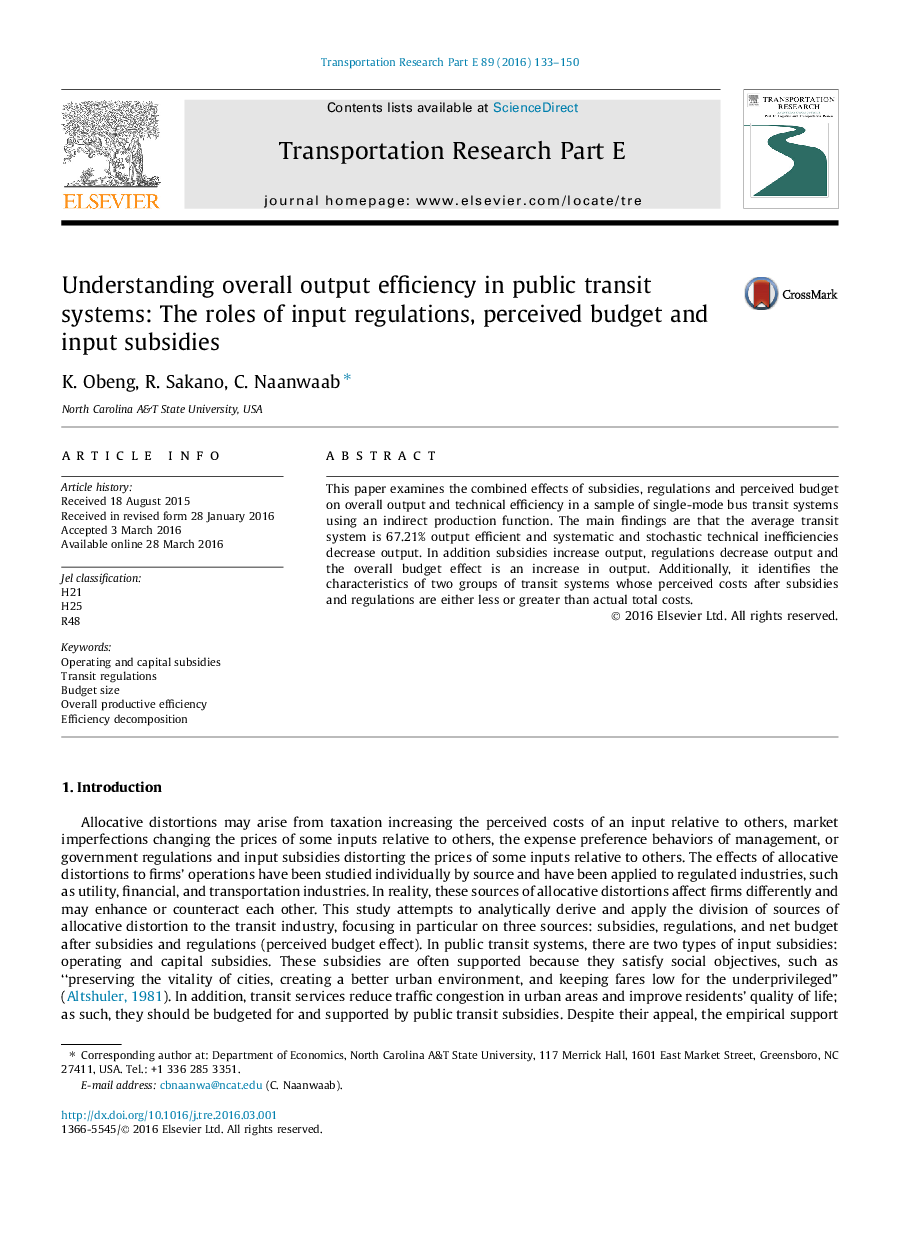| Article ID | Journal | Published Year | Pages | File Type |
|---|---|---|---|---|
| 1022985 | Transportation Research Part E: Logistics and Transportation Review | 2016 | 18 Pages |
•We examine allocative distortions in transit systems’ input usage and their effects on output efficiency.•Technical inefficiencies decomposed into the effects of subsidies, regulations, and firm-specific variables.•Due to regulations and subsidies, the average transit system is 67.21% output efficient.•Systematic and stochastic technical inefficiencies decrease output by 47.28% and 34.69%, respectively.•Operating and capital subsidies increase output by 84.29%, regulations decrease output by 23.60%.
This paper examines the combined effects of subsidies, regulations and perceived budget on overall output and technical efficiency in a sample of single-mode bus transit systems using an indirect production function. The main findings are that the average transit system is 67.21% output efficient and systematic and stochastic technical inefficiencies decrease output. In addition subsidies increase output, regulations decrease output and the overall budget effect is an increase in output. Additionally, it identifies the characteristics of two groups of transit systems whose perceived costs after subsidies and regulations are either less or greater than actual total costs.
